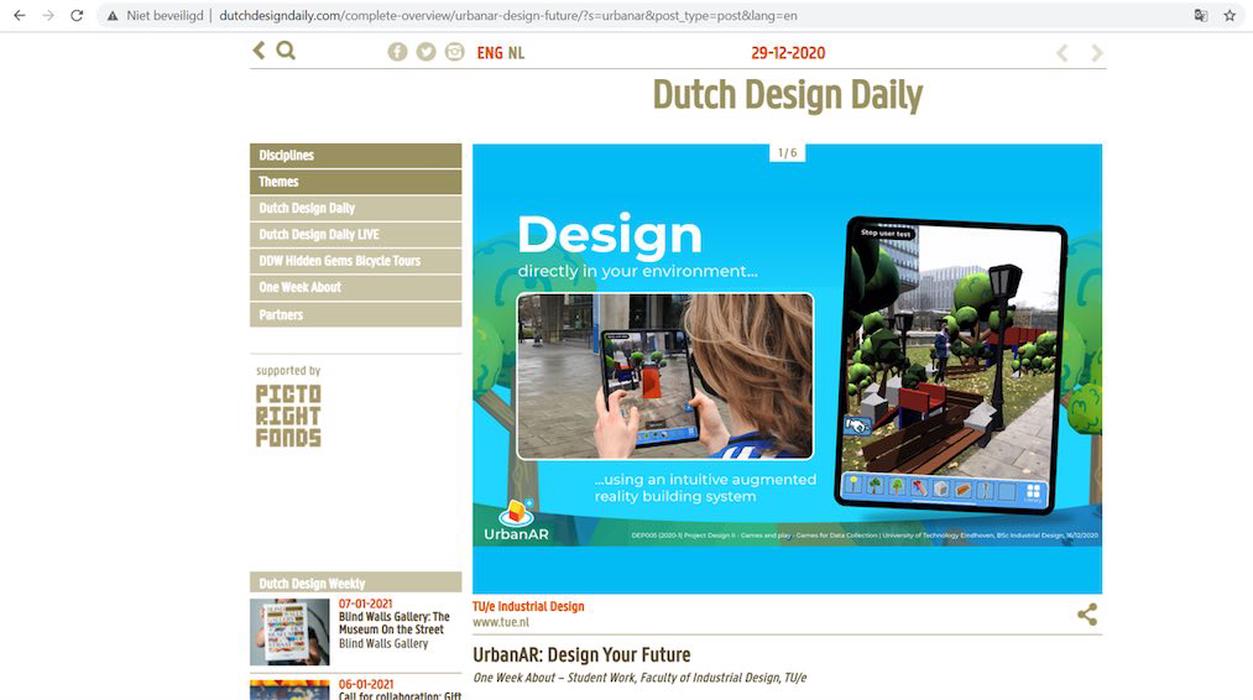Project Reflection
We started off with the pressure cooker, the focus was on orienting ourselves in the field of data collection and researching about the possibilities with gamification. Our first concept was a game to map out nature, where players would photograph life to earn points for each new lifeform. We learned that more extensive literary research at the start of a process is desirable, as we later found out by broadly orienting ourselves in this area, we were able to innovate on an opportunity that was way more interesting.
Shortly after, we made sure the process would run smoothly. Meetings were clearly organized, structured and conducted. Minutes were kept in order to keep track of all tasks, as well as a GitHub repository was added. However, the collaboration went downhill after a couple of weeks. This was because of the online communication that we were forced to use because of the pandemic, it became harder to keep track of the work and progress of other group members. Many parts of ideation were therefore conducted behind closed doors, which left other group members feeling overruled and left out. Later on during the fourth iteration, the core parts of the system that needed to be realized were clearly separated, allowing everyone to mainly focus on their own parts. This way, more accurate updates could be given and more appropriate help could be provided. A way of working that turned out to work really well and is worth trying again in our next projects.
The conceptualization of our interpretation of how citizen participation in urban design and planning needed to be improved was realized rather quickly. The prototypes clearly communicated our initial concept, even though they were very low fidelity. This taught us the importance of quick iteration through prototyping, as it has very strong communicative aspects and limits the amount of time one needs to spend on making it. The importance of prototyping became even more visible during the fourth iteration. Having to actually realize your concept in the form of a working prototype really pushes one to develop their skills. During a realization phase, there always are certain aspects causing problems that were not anticipated during the conceptualization phase. Moreover, the user tests gave very clear results and the data was relatively easy to interpret. This is mainly because the user could fully experience the main functionalities of the app as if it was already a finished product. For these reasons, we won’t underestimate the actual value of prototyping in next projects.
We decided to document our process in the form of a website instead of a report. It allowed us to easily implement lots of visual materials we had, without them being obtrusive to the view and experience of the viewer. We believe its readability is way higher than we would have achieved when using a report, as viewers can quickly move towards specific parts of our process without having to scroll many pages. Apart from that, it also taught us a lot about web design and the language of Markdown, further improving our skills in the area of Technology & Realization.
In the end, we are convinced we have had an amazing project, with outstanding results. The prototypes looked phenomenal and were fully functional. The way our project was represented at demo day clearly communicated the amount of work and dedication that went into all these weeks. Many people let us know they thought it was a wonderful idea and the idea was really cool. The responses were very enthusiastic and affirming for us. We are also very proud our own project was published on a design website called Dutch Design Daily (http://dutchdesigndaily.com/complete-overview/urbanar-design-future/?s=urbanar&post_type=post&lang=en) and are thankful for being able to carry out this project.

Our project has been published at Dutch Design Daily!
